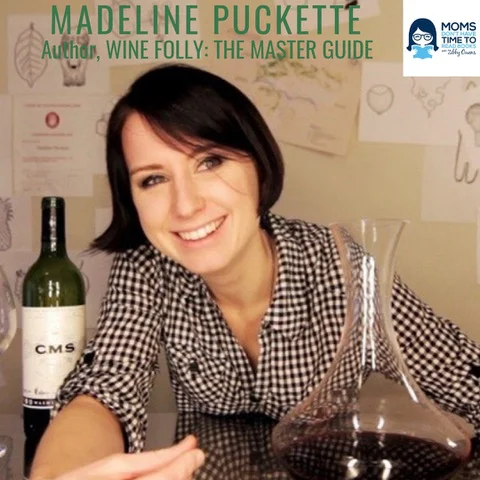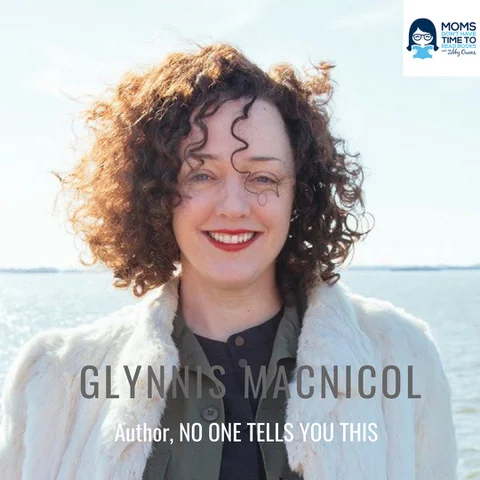Delia: I've written poetry all my life. I'm not saying I'm good at it at all. Words just come to my mind a lot. I feel a lot when I write poetry. I feel that the words themselves can be so inspiring to readers. Most people who love good prose and literature, even if they don't have time or the inclination to read poetry, when they do read a verse, they feel a lot. That was the number one thing I wanted about this book. I wanted people to feel. Poetry makes you feel. You can get your thoughts into a few words. You can do it in a way that it’s like putting a drug straight into your bloodstream. You have to read a whole novel sometimes to feel certain things and get the point. A poem can say so much in a few words. That's a reason it’s so powerful.
Gemma Hartley, FED UP: EMOTIONAL LABOR, WOMEN, AND THE WAY FORWARD
Gemma: There is a meeting point in the middle. When I say that I need to take a step back and let (my husband) do it, that doesn't mean that we don't have the same shared standard in what we want our life to look like and how we want things to run, how we want the house to look. We can agree on those things. He can get there a different way. Both men and women have to do the work to bridge that gap. There definitely were deeply held biases that I had. Even while writing the book and researching it, I still thought, “Maybe I'm just better at this stuff. It’s not hard wired, but I have that natural advantage,” which I don't think I do. If I'm logical about it, I know that’s not true.
Jennifer Miller & Jason Feifer, MR. NICE GUY
Rebecca Soffer, MODERN LOSS: CANDID CONVERSATIONS ON GRIEF. BEGINNERS WELCOME.
Rebecca Soffer is the co-author of MODERN LOSS: A CANDID CONVERSATION ABOUT GRIEF. BEGINNERS WELCOME. A graduate of the Columbia University Graduate School of Journalism, Rebecca is the founder of the online community and website, ModernLoss.com. She is a nationally recognized speaker about loss and resilience and has contributed to Marie Claire, Refinery 29, Elle Decor and others. Rebecca was formerly a producer for the Colbert Report. She lives in Manhattan with her husband and two young sons.
Natasha Solomons, House of Gold
Natasha: I wanted the gardens of the Goldbaums to be an expression of character. Initially in the ghetto, the Jewish children were banned from the city parks. Jews weren’t allowed to have gardens. The first thing the Goldbaums do when they have money is they want to create these amazing gardens for their chateaus and their castles.
Sara Bliss, TAKE THE LEAP: Change Your Career, Change Your Life
Sara: I kept waiting for someone to give me that opportunity. It didn't really come. I had to make it for myself. That took a lot of time to do. Now, the whole landscape is different. Just do it, really. That's really the bottom line. Whatever it is you want to do, you need to prepare. You have to research. You need to connect with other people who've done it. You need to buy my book.
Min Jin Lee, Pachinko
Anne Lamott, ALMOST EVERYTHING: NOTES ON HOPE
Anne: You just don't give up. You don't give up no matter how long it takes. You don't give up just because it looks so doomed or scary out there. You keep the faith. You do the radical self-love. You take care of people. You help the poor. You help your cranky uncle. You try to eat as well as you can. You forgive yourself when you don't. Who knows what God’s got up her sleeve.
Sen. Kirsten Gillibrand, BOLD & BRAVE: Ten Heroes Who Won the Right to Vote
Sen. Gillibrand: I make it up as I go along. Every year I make different refinements on what is necessary to keep me whole this year. Life changes. Your kids change. They get older. You've got to meet their needs in a different way. Every era of being a parent is different. I now have a teenager. Theo is fourteen in high school. It’s very different. Henry’s ten. He's in fifth grade. He's just entering middle school with all those challenges. My kids need different things from me. I try to really meet them where they are and be the best mom I can be.
Jo Piazza, Charlotte Walsh Likes to Win
Jo: I don't think that book clubs are going anywhere. Hopefully books aren’t going anywhere because I have no other skills. I am seeing an uptick in the podcast club. I kind of love it. An episode of a podcast, they make you think the same way that books do. They're a little bit more assessible, especially for busy moms, than sitting down and reading an entire book. I'm all for it, especially if people wanted to listen to “Committed” and then go talk about it.
Rebecca Schrag Hershberg, Ph.D., THE TANTRUM SURVIVAL GUIDE
Tantrums are normal. They're expected. They're happening at a time when little kids are figuring out who they are and how the world works and how relationships work and how feelings work. Most kids -- I'm going to say most because I would never say every single one -- most kids have tantrums because it’s part of a developmental trajectory that's healthy. I take objection when articles say, “Ten Quick Ways to Stop Tantrums Once and For All.” That's just not going to happen.
Molly Flatt, The Charmed Life of Alex Moore
Beth Ricanati, MD, Braided: A Journey of a Thousand Challahs
Watch our challah baking video.
I'm thrilled to be here today with Beth Ricanati, MD, who is a physician who built her medical practice around bringing wellness into everyday life, especially for busy women juggling work, children, and their relationships. I don’t know anyone like that.
Georgia Clark, The Bucket List
Georgia Clark is the author of THE BUCKET LIST and several other novels. She started Generation Women, a multi-generational speaking event, which she invited me to! Here’s my video.
Georgia: Everyone has good ideas. You take the ideas that work and all that kind of stuff. It’s been funny how I've sort of come full circle over my career now from trying to get into screenwriting in my twenties, taking a left and becoming a novelist, and now maybe I'm getting back into it. I hope so. I hope we get on the air. Cross your fingers for me.
Jeff Norton, ALIENATED: GROUNDED AT GROOM LAKE
Madeline Puckette, WINE FOLLY: MAGNUM EDITION, THE MASTER GUIDE
Madeline: Some husband/wife duos are power team partners. I've always been a little bit competitive with my husband. When we’re being husband and wife, we’re super pals and support each other and that sort of thing. He's very smart. I'm very snarky. We do have a little bit of manning up. It makes for a lot of fun adventures that him and I have together. When you're trying to run a business together, it was a nightmare.
Kate Schelter, CLASSIC STYLE: HAND IT DOWN, DRESS IT UP, WEAR IT DOWN
Kate: For me, I have this thing with books where I really like to read my own category I call “applicable knowledge.” I really like books that teach, that show you how to do something, for example, a cookbook, self-help book, a book on meditation, and any kind of design book where there's big monographs with photographs and images that I can refer back to that are history-related
Ingrid Fetell Lee: JOYFUL: THE SURPRISING POWER OF ORDINARY THINGS TO CREATE EXTRAORDINARY HAPPINESS
Ingrid: It began to seem like they were universally joyful. I would start to look at other cultures and see, for example, kites. Kites are everywhere. People on every continent fly kites. What is it about these certain pleasures that are so universal? I started putting pictures of them up on my wall to try to see if I could understand.
Jeanne McCulloch, ALL HAPPY FAMILIES
Jeanne: It obviously isn't always lovely to have a writer in the family at all. I got different answers. The one thing that seemed to be the general truth in all of that and the take-home for me was you cannot let that stop you from telling your story. Whatever footwork you have to do to go to various people and talk to them about it, if you're going to tell your story, you're going to tell your story. That was the way I proceeded. I knew it was not going to be easy.
Glynnis MacNicol, NO ONE TELLS YOU THIS
Glynnis: Figuring out how to talk about grief and how you can feel like, “Oh, it’s been a year and a half. I should be over this or dealt with this.” That's never the case. It just takes on different forms. In the moment as those things were happening, I dealt with it by eating a lot of chocolates. I gained twenty-five pounds that year. In the aftermath, I dealt with it by writing the book. You can ask me in a year how I'm dealing with it now. Now, it’s all wrapped up in the book too. I'm having to come out of the book-writing process and deal with real life, sort of.



















